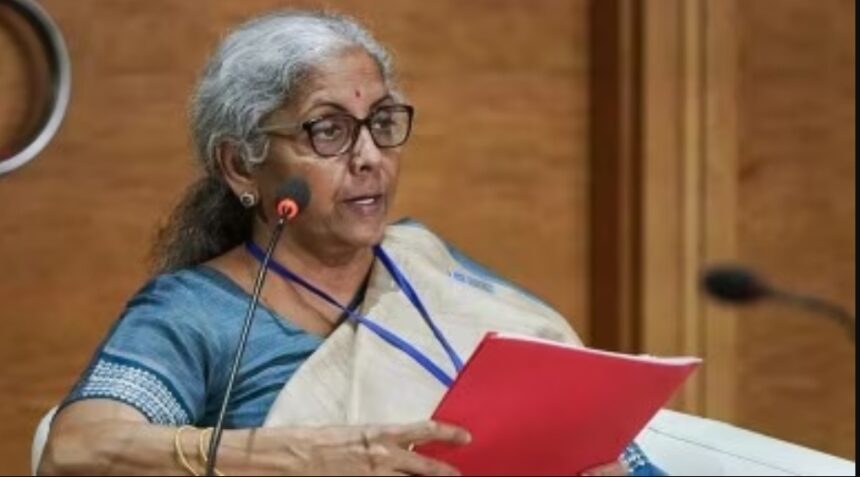The final budget session of the 17th National Diet will be held from January 31st to February 9th. The interim budget is expected to be presented by Sitharaman on February 1.
UNION Finance Minister Nirmala Sitharaman’s next interim budget is unlikely to contain “grand announcements” but is expected to include small tax cuts and increases in social spending, officials said.
The interim budget for 2024-25, to be announced on February 1, will see certain income tax rate adjustments, particularly for those at the bottom of the tax pyramid, as well as a switch to a new income tax system. There is a high possibility that the Officials said the tax authorities are also considering improving revenue collection efficiency through additional transactions under TDS and 360-degree profiling of taxpayers, with the initial stage expected to last several years before the final stage. This is a measure that has yielded good results.
So far, interim budgets (also known as settlement votes) have not brought about major changes. Ahead of the 2019 Lok Sabha elections, the then Finance Minister Piyush Goyal had announced concessions to farmers and pensions to unorganized sector workers, besides increasing standard deduction and tax at source (TDS) thresholds. He was proposing a system. Five years ago, in 2014, then Finance Minister P. Chidambaram had announced cuts in excise duty on small cars, motorcycles, scooters, SUVs (including large and medium-sized cars) and tax cuts on mobile phones in the interim budget.
Then, in the 2009-10 Interim Budget near the end of the United Progressive Alliance (UPA) government’s first term, then Finance Minister Pranab Mukherjee announced a relaxation of fiscal targets. This was preceded by a fiscal stimulus marked by Rs 40,000-crore of tax cuts in December 2008, which was later criticised for posing a challenge to fiscal consolidation.
Before that, in the final year of the AB Vajpayee-led NDA government, marked by the Interim Budget of 2004-05, saw late Jaswant Singh announcing changes in the stamp duty structure, revival packages for the tea and sugar industries, and merging of dearness allowance with basic pay. These weren’t the only measures taken as Singh had already announced major changes in both direct and indirect taxes in January 2004 including a cut in the peak rate of customs duty on non-farm goods to 20 per cent from 25 per cent, lower customs duty on project imports, coal and the power sector, and abolishment of the special additional duty on customs duty of 4 per cent.
While the revenue side of the Budget may see some tax cuts and efforts to increase efficient mobilisation, the focus of public expenditure is likely to be on infrastructure and welfare spending, but which may and can be achieved without huge fiscal implications, a person in the know said.
Continuing the trend from previous years, the Centre is expected to continue its thrust on capital expenditure in the upcoming year too, albeit at a slower pace than previous years. The Center had increased the budget estimate for capital expenditure to Rs 100,000 crore in 2023-24 from Rs 7,280,000 crore in 2022-23 and Rs 5,920,000 crore in 2021-22.
Mahatma Gandhi National Rural Employment Guarantee Scheme (MGNREGS) will receive increased budget allocation after initial budget estimate of Rs 60,000 crore for FY24 was reduced by 49 per cent (compared to revised estimate for FY23) Probability is high.
The government had said this was a demand-driven program and more funding would be made available as needed. This was subsequently reflected in an additional allocation of Rs 16,143 billion for MGNREGS in the first supplementary subsidy application submitted to Parliament in December 2023.
The final budget session of the 17th National Diet will be held from January 31st to February 9th. The interim budget is expected to be tabled by Sitharaman on February 1. Lok Sabha elections are likely to be held in April-May, after which the elected government is expected to present the full budget in July.
The government will cover spending for the first four to five months of the financial year starting in April to cover salary payments and spending on ongoing programs in various areas without changing the tax system. A resolution has been submitted to Congress for approval. . Until the new government takes over and presents a complete revised budget for the entire financial year. Over the years, some governments have taken policy measures or adjusted tax rates to create interim budgets before elections.
For more information, see https://happenrecently.com/zepto/?amp=1



